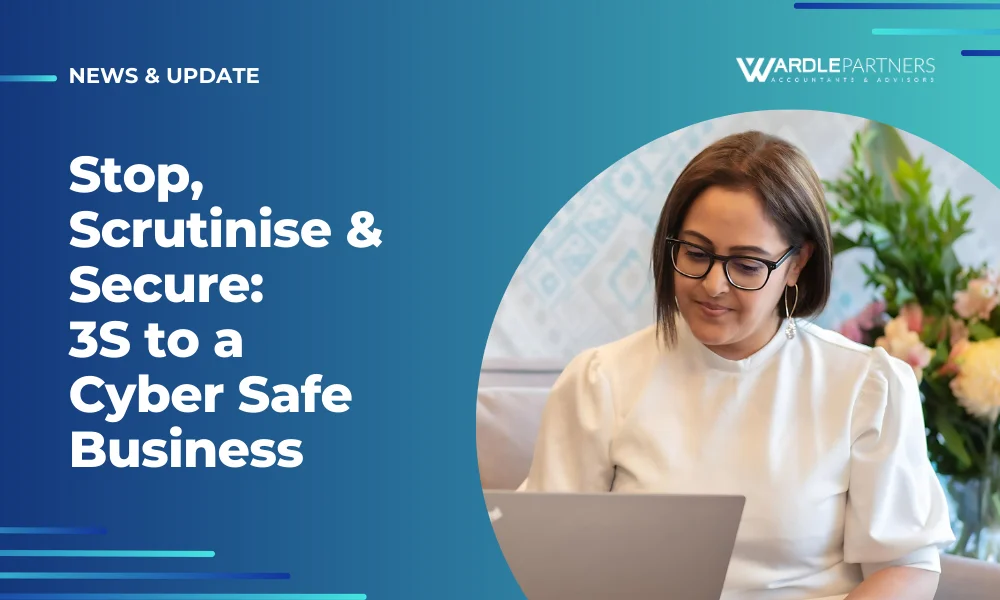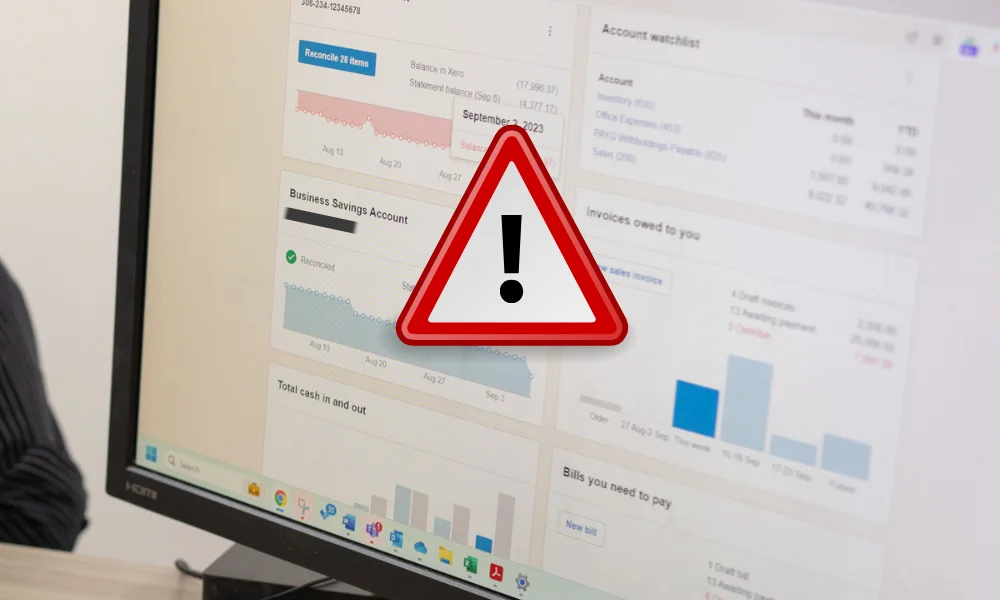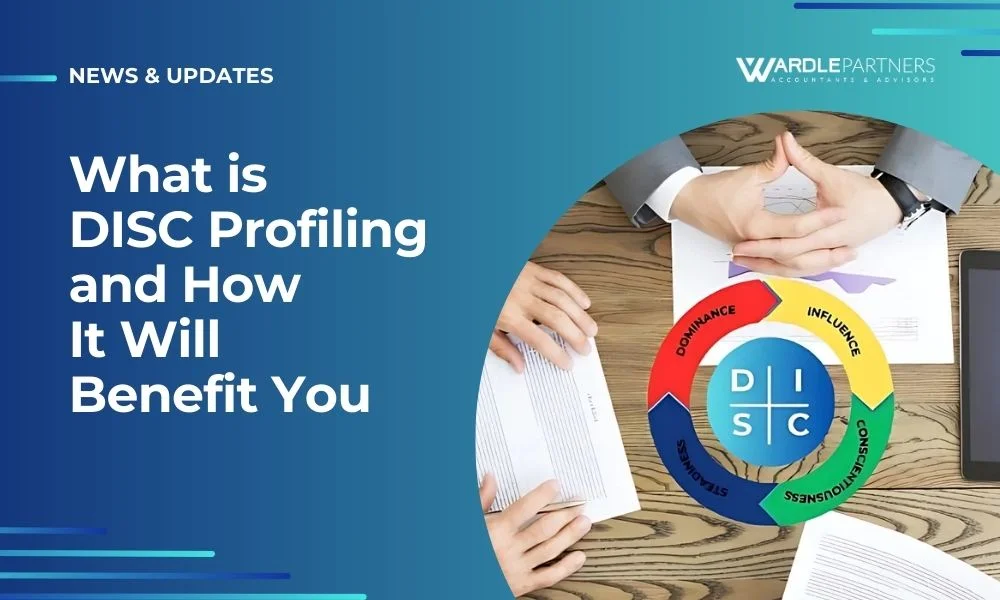Stop, Scrutinise and Secure: 3S to a Cyber Safe Business

Is your business cyber safe? Businesses of all sizes are easy prey for fraud, scams and cyber crime today. A successful attack can cripple operations, erode customer trust, and inflict severe financial damage. Taking a proactive stance towards cybersecurity is no longer optional – it’s essential for survival.
What Are Scams and Cyber Crime?
Sure, you have an idea what scams and cyber crimes are. But do you really understand how this impact you and your business?
Scams and cyber crimes are malicious activities designed to defraud, steal, or exploit businesses and individuals. These can include phishing attacks, ransomware, identity theft, and various forms of online fraud. The perpetrators behind these crimes leverage sophisticated technology to breach security systems, manipulate data, and wreak havoc on operations.
Common Scams and Cyber Crimes to Avoid
Understanding and recognising common scams and cyber crimes is critical in safeguarding your business against potential threats. Here are some prevalent schemes to watch out for:
Phishing Attacks
Phishing involves fraudulent emails or messages that appear to come from a trusted source, tricking recipients into revealing sensitive information such as login credentials or financial details. Always verify the sender’s identity before clicking on links or downloading attachments.
Ransomware
Ransomware is a type of malware that encrypts your data, making it inaccessible until a ransom is paid. Regularly back up your data and ensure your security software is up-to-date to protect against ransomware attacks.
Business Email Compromise (BEC)
BEC scams involve hackers gaining access to a company’s email accounts to impersonate executives or employees and trick others into transferring funds or sensitive information. Always verify unexpected requests for payments or sensitive information via an alternative communication method.
Malware
Malware, or malicious software, can enter systems through infected email attachments, software downloads, or unsecured websites. It can disrupt operations, steal information, or damage systems. Use comprehensive security software and be cautious about what you download or open.
Social Engineering
Social engineering involves manipulating individuals into breaking standard security procedures. This can include pretexting, baiting, or tailgating to gain access to restricted areas or information. Training employees to recognise and report suspicious behaviour is essential.
Identity Theft
Identity theft occurs when a cybercriminal steals personal details to commit fraud, such as opening accounts or making transactions in the victim’s name. Protect sensitive information and monitor for unusual account activity.
Fake Invoices
Fraudsters may send fake invoices that appear legitimate to trick businesses into making payments. Always verify invoice details with the purported sender through known and trusted communication channels.
By staying vigilant and educating yourself and your employees about these common scams and cybercrimes, you can significantly reduce the risk of falling victim to malicious activities.
How Do These Affect Your Business?
The impact of scams and cyber crime on businesses can be way devastating. We know there are businesses who have closed out, all because of these. Financial losses are often the most immediate concern, but the repercussions extend far beyond that. A breach can lead to significant downtime, disrupting daily operations and resulting in lost revenue.
Most importantly, compromised data can severely damage a company’s reputation, leading to a loss of customer trust and loyalty. In the worst-case scenarios, businesses may face legal consequences and regulatory fines, further compounding the financial strain.
Steps You and Your Employees Can Take to Keep Your Data Cyber Safe
Your data is the valuable information that keeps your business running smoothly, from customer details and payment information to business strategies and legal documents. In the wrong hands, this data can be worth a significant amount of money. Criminals may sell your stolen data to the highest bidder, demand a ransom for its return, or use it for identity theft.
No matter the size of your business, help keep your data safe with this simple 3S:
Stop and don’t get clicked
Be cautious of scanning QR codes or clicking on links and attachments in emails and texts. These may infect your computer or mobile device with malicious software that can steal your information.
Cease communication with anyone who requests remote access to your computer or device. Scammers might claim they need access to ‘fix a problem,’ when their true intention is to steal your information.
Scrutinise and confirm
Confirm the identity of anyone requesting sensitive information. If you’re unsure whether a message or call is legitimate, verify the person’s identity by contacting the organisation via their official, publicly listed phone number.
Ensure that automatic updates are enabled on your software, apps, and operating systems. Software providers regularly release updates to protect against security threats.
Secure and back it up
Use strong, unique passwords, ideally comprising at least 10 characters, with a mix of upper and lower case letters, numbers, and special characters. Alternatively, use a passphrase – a longer collection of words meaningful only to you.
Back-up your data. Utilise an external server or hard drive separate from your network to store a back-up copy of your data, so it can be restored if lost or stolen. If you opt for cloud storage, choose a reputable provider and encrypt your data.
Regularly check in with your online security service provider to confirm they have your security needs covered.
Taking these steps can help you and your business be cyber safe and significantly protect you from these lurking attacks you never knew existed. Also, going through the Cyber Security Assessment Tool can help improve cybersecurity skills among business owners like you.

Key Elements to Safeguard Your Business from Various Threats
Education and Training: Regularly educate and train employees on recognising and responding to potential security threats. Awareness is the most important and the very first line of defence from cyber-attacks.
Robust Security Measures: Invest in comprehensive security solutions, including firewalls, anti-virus software, and intrusion detection systems. It is highly advisable to run a regular update and maintain these tools to ensure they are effective.
Multi-Factor Authentication (MFA): Implement MFA to add an additional layer of security, making it more challenging for attackers to gain access to your systems.
Data Encryption: To avoid unauthorized access, encrypt critical data while it’s in transit and at rest.
Incident Response Plan: Develop and maintain a robust incident response plan to quickly and effectively address security breaches and minimise damage.
Cyber Insurance
Utilising a combination of technology, secure devices, domain knowledge, and cyber insurance makes a huge difference in terms of controling cyber risk. Having a complete cyber insurance policy in addition to precautionary steps is advisable.
Cyber insurance offers defense against monetary losses brought on by hacking, data breaches, and other online dangers. It can pay for data recovery charges, legal bills, notification costs, and even PR campaigns that are required to restore your business’ reputation after an incident. Having this coverage guarantees that, in the event of a cyber incident, any business can bounce back fast and carry on as usual.
Conclusion
Don’t wait until it’s too late – protect your business today! Always remember that prevention is better than cure when it comes to cybersecurity – invest in your business’s protection now to save yourself from potential future losses and damages. By taking a proactive stance on cybersecurity, businesses can protect their valuable data, maintain customer trust, and ensure ongoing success.
Work with people who make your data privacy a priority. At Wardle Partners Accountants & Advisors, we are committed to ensuring your privacy is always protected. Working with us means, having the confidence that all your personal information is safe as we take all reasonable steps to ensure that they are cyber safe. Check out our Privacy Policy for more information.
Did You Know?
60% of small businesses that suffer a cyber-attack close their doors within six months.
43% of cyber-attacks target small businesses, making awareness and preparedness crucial.
Ransomware attacks occur every 11 seconds, highlighting the importance of regular data backups and robust security measures.



